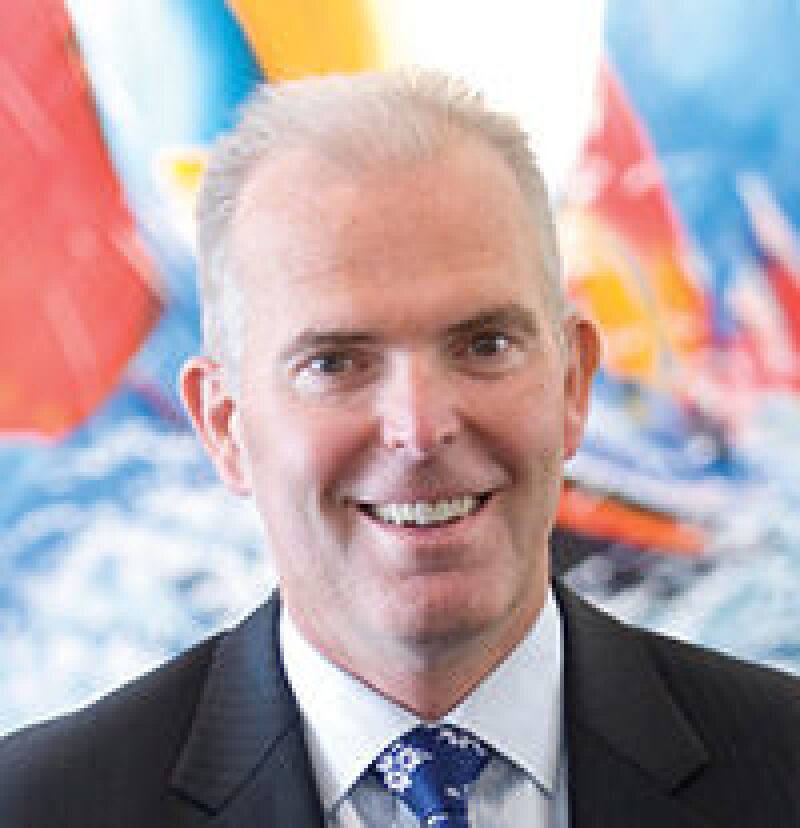We are quite proud of the two face-to-face interviews we conducted for this issue. Michail Tzouvelekis and Anthony Onukwu sat down with Colin Welsh, chief executive officer of investment bank Simmons & Company International in Aberdeen. Carlos Chalbaud met Yves-Louis Darricarrère, Total’s President of Exploration & Production, in Paris. The two industry leaders spoke to us about this issue’s main topic, continuing education, and what they look for when they are recruiting young professionals. We also asked them about the effects of the recent downturn and the blowout in the Gulf of Mexico, among other things. We hope you enjoy their insight.
In July 2000, you were quoted in Offshore Engineer as saying that with respect to the then new independent entrants to the North Sea: “Many of them will end up picking up tail-end production and finding ways of prolonging field life, reducing costs, and doing step-outs. This will make them more established and will boost the sector as a whole.” Having been proven right, do you expect this to continue to be the dominating theme for the future in most parts of the world?
The big theme for E&P in the future is going to be the struggle on the part of the major oil companies to grow their production organically. Depletion has always been an issue but the challenge just got tougher because a lot of new projects were postponed or canceled because of the financial crisis, and the consequences of the blowout in the US Gulf of Mexico will stall new projects further. As far as the second-tier E&P players are concerned, it seems to me that they are in a pretty good position because national oil companies and utilities will continue to look to pick up assets to ensure security of future supply.
You set up the Eastern Hemisphere base for Simmons & Company 11 years ago. What do you think has changed in the industry since then?
When we set the business up 11 years ago the industry was much more US-centric than it is today. We hoped to be successful primarily in Aberdeen, the UK, and Scandinavia, and underestimated how the market would evolve in the Middle East, Africa, and Asia. These are all important parts of our business today. There has also been a big shift in the interest in investing in energy and oil and gas. Back in 1999, crude was trading at USD 10/bbl and the oil and gas business was not an attractive place to invest in, but it is a different ball game at USD 75/bbl. The other key thing that has changed is that the number of private equity firms that want to invest in energy has risen dramatically, and that has stimulated activity.
Given the relatively low oil price in 2009, did we witness as much merger and acquisitions (M&A) activity in the past 12 months as had been predicted?
2008 was a record year for mergers and acquisitions in oil and gas services. The expectation was that activity levels would continue to be healthy in 2009, but of course when the financial crisis came along, the debt markets basically shut up shop, which made it extremely difficult for the M&A business. The deals that we have seen, such as ExxonMobil getting into the shale market, Schlumberger taking over Smith, and Baker Hughes taking over BJ Services, were all strategic deals.
When money is tight and trading is difficult, you would typically expect a lot of distressed companies to emerge. In reality, there have been very few failures and in that respect I am surprised that the sector was so resilient.
Did it not seem that the companies who were distressed were the ones that the banks pulled out from?
The banks did not pull out of many of the companies relative to other sectors. I think energy got off very lightly in terms of insolvencies, but unfortunately there are quite a few very good companies that were bought far too expensively with a lot of leverage, and those companies are stalled right now. It is hard for them to get money to do anything to build their business because equity providers do not want to put good money after bad and the banks are already in an overexposed position. That is the consequence of there being too much debt available in 2007 and 2008 and the private equity herd mentality. Today there is definitely finance available for good deals that involve companies which are not overleveraged.
It seems that it was the companies that had cash and did not need to borrow money that went in and moved strategically. ExxonMobil paid USD 41 billion out of its own pocket for XTO Energy.
Absolutely. Unlike previous downturns, large players were in good financial shape. In fact, during the financial crisis, companies like Schlumberger and Weatherford still managed to successfully complete large bond offerings, which gave them a buffer and left them free to do the things that were strategically important to them.
Were oil companies deeply affected by the recent economic crisis? Or do you think the mitigation measures taken were effective? How do you see the recovery?
Every company was significantly affected by the economic crisis, from the big oil companies down to the small service companies. The mitigation measures, canceling or delaying new projects, and squeezing the margins of the service sector were effective in the short term but will be damaging in the longer term, not just because it will make it difficult to maintain production levels, but because every time there is a downturn the industry loses people, and they do not all come back. There is no doubt in my mind that the sector will bounce back, but the timing of the recovery is uncertain.
When you are hiring someone to join your team, what qualities are you looking for? What would make someone stand out to you and does a postgraduate degree or an MBA make a difference?
We hire graduates straight from college, recently qualified accountants, and people with a background in the oil and gas industry. It is more important to us to find self-starters who can work on their own initiative, who have a lot of common sense, and who have a strong desire to win, rather than someone who has a postgraduate degree or an MBA. The most important thing is they have to work hard and fit into our team. An MBA might be helpful but is certainly not essential.
Speaking of business development, what were the business opportunities for Simmons & Company International during the downturn? What is your focus now?
It is easy to be casual about what happened during the downturn, but you have to remember we were all concerned that the financial system seemed broken and what that might mean. So, quite sensibly, we prepared ourselves for what might have been a pretty horrible environment. We cut costs where we thought we had picked up fat over the years and we did a pretty effective job of shedding that fat without impacting the productive capacity of the business. We wanted to ensure we had a solid platform to build from when things got better so we did not cut people indiscriminately, and our staff appreciated that. Our focus is now on maintaining our position as leading advisers to the oil and gas and energy industry, and building on that platform internationally.
Given that Simmons & Company International is an investment bank, do you think its reputation has been affected by the recent bad press surrounding that industry? If so, how? How do you think others perceive this in the oil & gas industry?
As a specialist energy adviser, we are not involved in trading subprime assets or anything like that. Our business is about the quality of advice we provide to our clients. The quality of that advice has not changed before, during, or after the financial crisis. Our reputation may even be enhanced, because, in the lead up to the crisis we advised our clients not to pay crazy prices. We want our clients to feel that we are giving them the best advice, not just advice that will get a deal done and earn us a fee. We are not in that business.
In many respects, the root of the problem arose because investment and commercial banks existed under the same roof which led to both conflicts of interest and greed. The financial sector in general deserved to get a good kicking, particularly the large investment banks because they were the architects of the financial crisis.
We appear to be starting to look at the other side of the downturn as the oil price has been relatively steady for months now. Going forward, what do you think the future will bring and what piece of advice can you give to our young readers?
It would be naive to think that within 12 months of the financial crisis being over, we are back to business as usual. I do not think we are out of the woods yet. The ripple effects will be with us for a long time and continuous market nervousness will result in greater volatility. We are in the process of digging ourselves out of a big hole that we dug ourselves into, but we can expect to slip back down from time to time. The crude price will strengthen slowly, primarily because of the strength of demand in China. The oil and gas business will be a good place to work and invest in for the foreseeable future, particularly if the industry can morph itself into a broader energy role that encompasses renewable energies which can utilize oil and gas capability and capital as a catalyst. The world cannot exist without energy, so my advice to any young person who is looking for a fulfilling and rewarding career that allows you to travel the world is that this is a sector that you should not be turning your back on.

In 1999, Welsh was invited to join Simmons & Company, the world’s leading energy investment bank, to establish and lead the firm outside of the Americas. That business now advises on oil, gas, and alternative energy transactions across the world from its hub in Aberdeen and its satellite offices in London and Dubai. Since inception, his team has closed 143 transactions with an aggregate value in excess of USD 10.7 billion.

